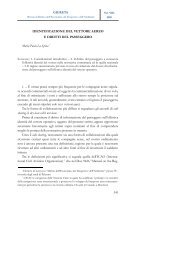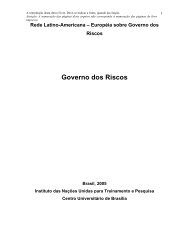Rome II and Tort Conflicts: A Missed Opportunity Abstract Contents
Rome II and Tort Conflicts: A Missed Opportunity Abstract Contents
Rome II and Tort Conflicts: A Missed Opportunity Abstract Contents
Create successful ePaper yourself
Turn your PDF publications into a flip-book with our unique Google optimized e-Paper software.
SYMEON C. SYMEONIDES ROME <strong>II</strong> AND TORT CONFLICTS<br />
154<br />
did the foreign defendant invoke a similar defense. Although most of these cases<br />
involved American manufacturers, several cases involved foreign manufacturers.<br />
Thus, unless marketing patterns are much different in Europe, the marketing defense<br />
will probably be unsuccessful in all but the rarest instances. In turn, this suggests that<br />
Article 5 will lead to the application of the law of: (a) the parties’ common habitual<br />
residence, in the few cases when such common residence exists; <strong>and</strong> (b) the victim’s<br />
habitual residence in most of the remaining instances. Few cases would trickle down<br />
to the law of the country of acquisition, <strong>and</strong> even fewer, if any, to the law of the<br />
country of injury.<br />
If these assumptions are correct, the next question is whether these results are<br />
acceptable. In answering that question, it helps to remember that actual cases are often<br />
far less complex than classroom hypotheticals. For example, although in the abstract<br />
there may be good reasons to criticize the application of the law of the country of the<br />
victim’s residence as such, it is helpful to know that, in the majority of cases that<br />
country is likely to have at least one or more additional pertinent contacts. This was<br />
so in seventy-two percent of the disputes in the aforementioned American study. 155<br />
Nevertheless, although the presence of these additional contacts make the application<br />
of the law of the victim’s domicile more defensible in practice, Article 5 itself must<br />
also be defensible in those cases in which these other contacts are lacking. Moreover,<br />
the fact that Article 5 does not differentiate between cases in which the law of the<br />
victim’s domicile favors <strong>and</strong> those in which it disfavors the victim raises additional<br />
questions. One such question is whether Article 5 favors residents of developed<br />
156<br />
countries <strong>and</strong> disfavors residents of lesser developed countries. In the above<br />
hypothetical, the German plaintiff who was injured in India by a Japanese product<br />
acquired in Egypt will get the benefit of German law. However, an Indian plaintiff<br />
who is injured in Austria by a German product acquired in Germany will be confined<br />
to the remedies provided by Indian law. Was this deliberate? If yes, it is one more<br />
example of a territorialist choice-of-law rule which, though seemingly value-neutral,<br />
disguises specific policy choices.<br />
If the only objective of products liability law is to ensure the “right” amount<br />
of compensation for victims, then the application of German law to the German<br />
plaintiff <strong>and</strong> Indian law to the Indian plaintiff may be defensible. However, to the<br />
154. See id. at 337.<br />
155. See id. at 320-22. American courts applied the law of the victim’s domicile in sixty-five percent<br />
of all cases, but in all but twelve percent of those cases that state had one or two additional<br />
contacts <strong>and</strong> in more than half of them, that state had a pro-defendant law. See id. at 325.<br />
156. For purposes of illustration, it is worth noting that American courts, which are often accused of<br />
favoring plaintiffs, applied a plaintiff-favoring law in only fifty-two percent of the cases. See<br />
id. at 332-33.<br />
56 AMERICAN JOURNAL OF COMPARATIVE LAW (2008) PAGE 36 OF 46



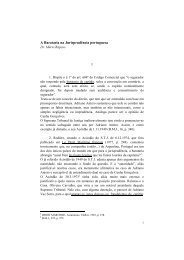

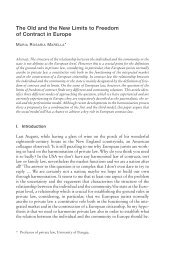

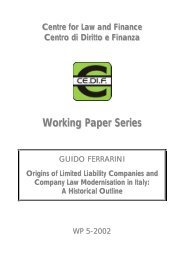
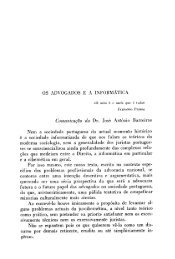
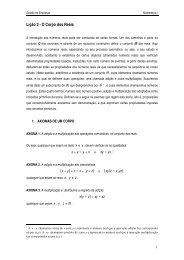

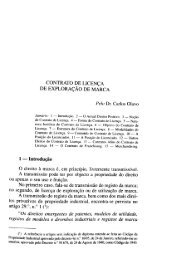
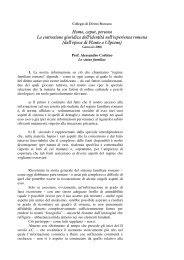
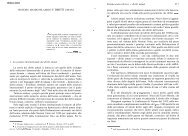

![Luigi Sapio Nozione di islām La parola “islām” [ ] è il mas.dar1 ...](https://img.yumpu.com/15836073/1/185x260/luigi-sapio-nozione-di-islam-la-parola-islam-e-il-masdar1-.jpg?quality=85)
